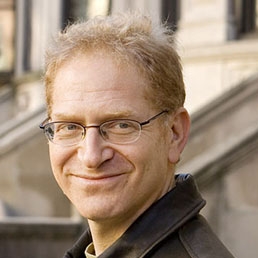Thomas Rayfiel
A Gift from Heaven
I was raped in a toolshed. I was eight. I could have fought, but didn’t, which made me think for many years that I had asked for what happened, enjoyed it, even. The man who did this to me was our neighbor. By the time I realized what had truly occurred he was in a nursing home. I visited him. I didn’t have a plan. His daughter, when I contacted her, was surprised at first, but agreed it would be “nice” for him to see me. “He’s not himself, though,” she warned. She offered to come but I said no. I went during the day, when I knew she would be at work. I brought a knife, not a hunting or self-defense knife, a kitchen knife with a serrated edge in a cardboard sleeve, the kind you use to gouge out the core of a tomato.
“Mr. Cirillo,” I said. “It’s Bobby Simmons. Remember me?”
The question was, did I remember him? This was a wreck of a man, listing to one side of a wheelchair, bony fingers clutching the arms as if an invisible force was dragging him to the floor. His mouth was open in a permanent expression of terror.
“How are you doing?”
I pulled up a chair, sitting in it back-to-front so a broad shield of plastic protected me from…what? What paralyzing sinister rays still emanated from that unfocused stare? The knife was in a bag, along with apples, a book about Saint Paul, and a football. Mr. Cirillo loved football.
“Look what I brought.” I showed him. “It’s signed.”
It was indeed. By a quarterback, my favorite player, growing up. I had bought it recently at a charity auction. He was Mr. Cirillo’s favorite player, too. We had bonded over that.
He shifted in his chair. Someone had dressed him. His buttons lined up. I pictured what it would be like to nestle into his lap one more time, to feel his fingers, smelling of gasoline (he liked to work on his car), explore my scalp, to feel them seize the roots of my hair as if they had found a trap door and pull hard, jerking my head up to meet his eyes, then direct me back down again, sending me on a secret mission, guiding my actions by remote control as, to some extent, they still did.
“My mother died. Last year. Cancer.”
A reaction was forming inside him. I could see it starting in his chest, a disturbance, then traveling up his windpipe, encountering resistance at the jaw. His lips were moving in all kinds of directions. A drop of drool fell from his chin.
I looked both ways to make sure no one was listening.
“Bobby the Bastard,” I reminded.
That was his private name for me, the one he crooned while I “did my business.” Also his phrase. Come to think of it, he supplied a large part of what would be my vocabulary for the next twenty years, while the tools hung off their pegboard hooks, watching. “Bobby the Bastard” had, at the time, seemed a simple statement of fact. The word rang true. It summed me up. I was an embarrassment, an excrescence. How did he know?
It had no resonance for him now, though. He was beyond phrasemaking. I laid the football on his lap. It would have to take my place. He stroked it, wonderingly at first, a gift from heaven, then more forcefully, more possessively. His fingers lingered over the laces.
Back at the rectory, we had a long meeting about the roof, which was leaking. By the time that was over, I was facing Evening Mass. I poured myself a glass of gin and stood looking out onto the leafy street. The knife still lay in my bag. It had outworn its sheath and now glittered in my mind’s eye. Souls, lost and otherwise, walked past, outwearing their bodies. I marveled at the beauty of God’s plan.

Thomas Rayfiel is the author of eight novels, including In Pinelight and Genius, Split-Levels, Colony Girl—a Los Angeles Times Notable Book of the Year—and Eve in the City. He has published stories in GQ, Grand Street, Antioch Review, and The Quarterly. He lives in Brooklyn.


